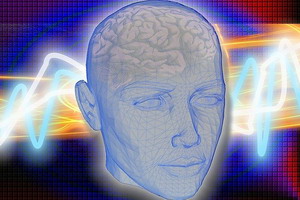
The subject of depression has come up for several patients recently, so I thought it would be a good subject for a newsletter. My interest is in looking at depression from angles different than the psychiatric community as I am a holistic practitioner. Psychiatry reports that depression is exceedingly difficult to treat. One of the most effective medical treatments is straight out of the 1940’s – electroshock therapy, with an improvement rate of about 50%. Electroshock therapy is not as scary today as it was in the old days as now they sedate the patients first. But they are still zapping the patient’s brain with 70 to 120 volts for several seconds. In spite of 80 years of use, they are still not sure just what it does to make things better. Most patients use various drug cocktails for depression, which are not very effective, but perhaps better than nothing. I say perhaps because many studies have found their use to be no more effective than a placebo.
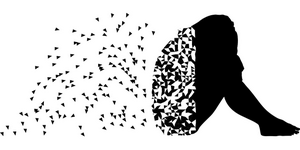
Lets pause for a moment to describe just what depression looks like. People use the term in daily use incorrectly to refer to being very sad or frustrated or unhappy. This is very different from clinical depression, which is the lack of feeling. A truly depressed person feels nothing at all, cares about nothing at all. The clinical term refers to a depressed affect – the lack of any feeling expression. With what I will be writing about shortly, this will make sense chemically in the patient’s brain. Modern medicine looks at mental disorders as often being due to a chemical imbalance in the brain, and the fix is to just add in the right brain chemicals to fix the imbalance. If you are unhappy, just increase the happiness chemicals (SSRIs), if you are too anxious then add in more relaxation chemicals (benzodiazepines), if you can’t move well (Parkinson’s) then pump in some movement drugs (DOPA), and so on. While this logically seems to make sense, it is a very childish oversimplification of how the brain works. More importantly, it does nothing to address why the brain chemistry is out of balance.
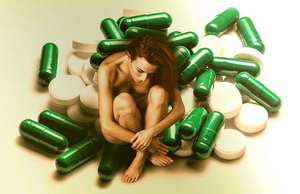
This oversimplified approach is because modern medicine in the field does not have the time or interest to figure out causes. Causes are complex and difficult to correct in patients. Medical research, on the other hand, has delved deeply into actual causes and produces tons of information every year – information doctors never look at. Drug companies (and supplement companies) look at this research hoping for the next miracle pill that doctors can prescribe to make patients feel better. The other people that look at this research are natural medicine doctors like myself, that are looking for what changes in a patient’s lifestyle and diet will produce improvements in their functioning. Natural medicine is much more challenging because it requires the patients to change what they are doing in their lives. Patients don’t want to do that. They want to keep eating crap, abusing themselves, and never have to take the time and effort to actually care for themselves. When it comes to our health, most of us are acting just like 2-year-olds – “I want it my way!” It takes negative consequences and pain to convince us that we are not going to get it our way and that we have to do things differently in order to heal and feel better.
The first big piece to the clinical depression picture I learned to address was balancing blood sugar. It has been known forever that low blood sugar will make a person cranky and irritable. More recently it has been discovered that high blood sugar/insulin resistance is highly associated with depression. There are at least 3 brain pathways involved. Insulin signaling is required for the release of the motivation brain chemical dopamine. Insulin resistance results in lower dopamine release which in turn blocks reward and motivation feelings, ability to feel pleasure, and ability to feel satisfied. Insulin resistance inhibits the HPA axis which is responsible for our ability to respond to stress and contributes to depressive behavior. And third, insulin resistance actually decreases the number and volume of brain cells in the hippocampus and ACC – part of the motivational network producing severe depressive symptoms. The medical approach is to try to squirt insulin up your nose to get more insulin into the brain or to use diabetes drugs targeted for the brain. No one ever suggests addressing the blood sugar/insulin resistance causes – the eating of too much food and too many sugars and carbohydrates. That might eliminate the need for more drugs, and besides, who wants to tell a patient they need to stop eating sugar?
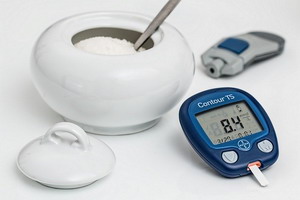
I first learned to address a type of blood sugar issue that is not even recognized today – unstable blood sugar. It is not recognized because it is too hard to test for. You have to test a patient’s blood sugar every 5 minutes for at least 2 hours to check for this problem. Who is willing to do this? The doctor I learned about this from did this on 500 consecutive patients in his practice and developed the protocols for correcting this condition. This common condition is completely missed by the normal blood sugar testing done today. Blood sugar can dip as often as every 20 minutes. When it dips the brain screams to the adrenals via the HPA axis to release adrenaline to mobilize sugar from the muscles to feed it to the brain. This is a tremendous stress on the adrenals and the brain. In addition, when the adrenals kick into this ‘fight or flight” state they also release a load of cortisol – the stress hormone. In a real “fight or flight” situation this is a good thing, but on a chronic basis, it is terrible. Part of what it does is suppress thyroid hormone production by both decreasing Thyroid Stimulating Hormone and by decreasing the conversion of the inactive thyroid hormone T4 to the active T3 form. So this chronic stress caused by unstable blood sugar takes away the hormone that turns on the basic energy levels in your body. You are too pooped to care about much of anything. Depression anyone?
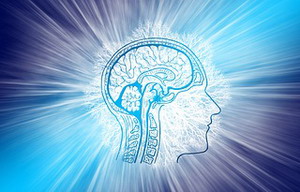
The most recent research over the last ten years has demonstrated that depression is actually rooted in brain inflammation. Everything today is rooted in inflammation, but what does that really mean? It means that the immune cells in your brain called glial cells have switched from being friendly garbage cleaners in the brain to hyper-vigilant “shoot anything that moves” soldiers that toss around a ton of toxic chemicals (cytokines). All your common brain diseases like Alzheimer’s, Parkinson’s, ALS, MS, and depression are caused by this. The difference is simply just what parts of the brain are being affected. What is causing this shift? Why does the brain act like it is being attacked?
Everything in the body happens by feel. Immune cells feel the stuff around them and react when they feel something that feels like an enemy. The most common scenario is the outside jackets of negative bacteria (called LPS) get carried by the vagus nerve from the gut to the brain, and dumps these jackets right into the brain. The vagus nerve sends messages back and forth between the brain and the gut. This feels like an attack to the immune cells in the brain. Now, normally LPS should never get into the gut area where the vagus nerve is. But with a poor diet, leaky gut happens and this nasty LPS stuff slips right in and travels up to the brain. Big message – bad diet causes brain inflammation. Medical researchers know this, but most doctors don’t because there is no pill to fix this and most medical knowledge is given to doctors by drug reps these days.
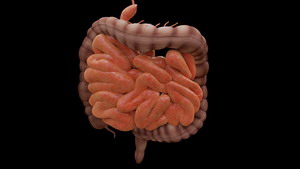
A bad diet comes from many things. Crap junk food creates leaky gut. Alcohol and other recreational drugs create leaky gut. Plant lectins create leaky gut. Stress creates leaky gut. Food sensitivities create leaky gut. Wheat and glutenous grains create leaky gut. Pain meds and antibiotics create leaky gut. Natural plant defense poisons create leaky gut. Pesticides, herbicides (think Roundup), fungicides, and most agricultural chemicals create leaky gut. All sorts of medications for various diseases create leaky gut as a side effect. Industrial toxins, poisons, cleaning agents, fire retardants, and household chemicals can create leaky gut. Even air pollution has been implicated in leaky gut and depression. All sorts of things destroy the gut lining that protects us from bacterial invasion. As the gut breaks down our immune system in the gut goes crazy creating all sorts of disease manifestations. Part of that list is depression. Looking at this list you can see why depression is so hard to treat. It is the end product of living in the modern world. Because of its immune system over-activation nature, depression is now being classified as an auto-immune disease. You can see the challenge here and where we need to attack the real problem at its base – our toxic lifestyle.
A third cause of depression is simple nutrient deficiency. This seems strange in this country with all the food we have available, but it is in fact common. It is common because of the big push over the last 60 years towards an agribusiness based diet. The huge push to eat corn, soy, and wheat has produced significant nutritional deficiencies. Plants are full of anti-nutrients because they really don’t want to be eaten. The list of these anti-nutrients is the subject for a different newsletter, but suffice it to say that our over use of commercially farmed foods is another cause of depression.
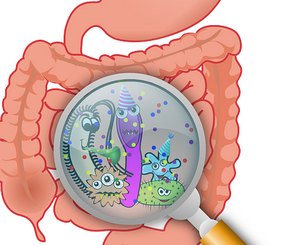
The last area I look at is our gut microbiome. I wrote an article about this last July. The concerns with leaky gut are pretty much the same concerns for a healthy gut microbiome. The microbiome actually creates neurotransmitters that directly influence how we feel, so we need a happy microbiome.
So from a holistic perspective I look at blood sugar problems, leaky gut causes, nutritional sufficiency, and microbiome to impact depression. Depression is not a simple issue to deal with. But when we get the body working correctly miracles can happen.
Take care,
David
